Imagine Cows on Mars
WINTER
I don’t know how long I lay in the capsule, slipping in and out of consciousness after touchdown. The landing had been rough and terrifying, and I was certain that my leg was broken. When I moved I blacked out, so I just lay there, sipping water to replace the rivers of sweat streaming down my face. When the reservoir ran dry, despair and apathy had equal shares of my heart.
The sun set and the sun rose. The day passed almost exactly as it did on Earth, save for the rapidity that light and dark melted into each other in the thin atmosphere.
At last, long after I had given up hope, the hatch popped open and a face appeared in the aperture. It was a great, hairy, red-cheeked face with frost-rimed goggles and beard. Through chapped, sunburned lips, the face laughed and said, “Welcome to Mars, you filthy immigrant.”
I was next conscious of jangling harness bells and of the crunch of sledge skis gliding through frozen sod. It was afternoon. It was cold. We passed under pink and ochre cliffs, deep black shadows falling over irregular heaps of snow. Something had been strapped to my leg to brace it, and the whole limb had been wrapped round and round with blankets, but it still hurt like hell with every jostle and bump.
Later, there was a tent, round and domed like a yurt. It was large and somehow full of drowsy warmth. I lay on a pile of shaggy skins with more of them heaped over me. My leg still ached, and I drifted in and out of fever.
Across the yurt was another bed. A girl lay in it, her pink face and blonde pigtails floating ridiculously above her own mounds of skins. Between racking coughs, she told me her name was Ellana. Before I could answer, the bearded, red-faced man returned and drew a curtain between us. Then he pressed a bowl of soup into my hands–a pale, steaming broth with floating masses of slippery, wispy fungus. I gulped it gratefully.
“Where are the others who came with me?” I asked.
“Did you know them?” asked the bearded man. I shook my head, and he shrugged. “There was only one parachute. Your capsule was the only one I saw. It’s always that way. You’re lucky to be the one that got through.”
Emigration to Mars was illegal. Those who sold the fares were unscrupulous–charging too much and spending too little. But I didn’t know it was as bad as that. I didn’t know that almost nobody ever made it to the surface alive. If I had, would I still have risked it all to come to this chilly, half-barren, still-unfinished rock? I thought of Earth again, and I thought I probably would.
I felt under the blankets for the chain around my neck, and the two rings hanging from it. It was still there–nobody had taken it. I looked again with amazement at the heaps of blankets, the soup, at the great man at the side of my bed. I tried to ask why all this should be done for me, but he just smiled. “We need you to make it through,” he said. “I wish a lot more of you did.”
SPRING
When the valley warmed, we drove the yaks up into the cooler hills. There was no rain, but the snow melted, and rivulets of water ran down from the highlands. Hardy grasses sprouted everywhere. We even sometimes saw the sun glinting off the terraforming drones as they flew overhead, spraying seed and fertilizer into the air.
Ellana showed me how to drive the yaks and how to call them back at dusk. She was only twelve, but she knew most of what there was to know about the animals. She taught me the herding songs and laughed when I tried to sing them. I’d never learned singing on Earth, and had never learned about this kind of work either. It was too crowded there for husbandry–food that required pasture was an unthinkable luxury. Efficiency, mechanization–those were the important things.
As we sat among the wildflowers, watching the yaks graze, I showed Ellana the rings I brought with me. They were my family’s wedding rings–saved and passed down from generation to generation. Ellana had never seen gold, but she told me about the mining camp they had passed once, with their hastily sunken shafts plumbing the depths of the planet for iron, copper, and tin.
Perhaps, when Mars was finished and officially open for human habitation, the terraformers would turn their attention back to Earth. Perhaps, one day, it would again be a paradise–less crowded, more open, full of opportunity. But I had decided not to wait for that. I wasn’t the only one.
Ellana’s father, whose name was Roald, had come to Mars much as I had when in his own impatient youth. Things had been even harder then–colder, drier, less populated. He told me that sometimes the yak herds (stolen by the first squatters from the wild herds released by the terraformers) had sometimes eaten nothing but lichen for months. He told me that sometimes the immigrants had nothing to drink but blood. But things had gotten better. It still wasn’t easy–Roald’s wife had died in childbirth, and now Ellana was sick. But he had three daughters. He had his yaks and his yurts and his wagon. He was a free Martian squatter and he was determined to survive.
Spring, they told me, was the longest season–fully seven months long. I was glad to hear that, as it was a beautiful season as well. From the highlands, we looked out over our valley, marveling at the great green fingers that climbed the sides of every rill, and even across the plains and up into the highlands themselves. The mountain peaks were still capped in bright white snow, but below them life was struggling and reaching for the sun, then dying and falling back to the dirt–each fallen blade of grass or cake of yak dung making the planet richer, turning the dirt into soil.
“Imagine it,” said Roald to me one bright day as we watched Ellana and her sisters braid edelweiss into their hair. “One day you might look out here, and see cows instead of yaks.”
SUMMER
One warm evening, Ellana and I returned from the highlands to find a stranger sitting with Roald. The herding song died on my lips. Nothing was amiss, exactly, but no strangers had visited the valley since I had been there. I had heard Roald talking with other settlers on the shortwave at night, but otherwise it was easy to think the planet was ours alone.
Ellana and I put the yaks away, but as soon as I could, I sought out one of Ellana’s sisters. “She’s a terraformer,” she told me. “Officially, they aren’t supposed to visit, but sometimes they do. None of them are supposed to admit or know that we squatters even exist. But they know it, and this one is here to tell us this valley will be flooded next spring.”
“Where will you go?” I asked. Then I blushed and said, “I mean, where will we go?”
The girl shrugged. “Over the highlands, to the next valley to the east. The sea is west of us. It’s good it’s growing–that means more rain and snow in the fall and more meltwater in the spring.”
“But what if that terraformer hadn’t found us?”
“We’d have had to run to the next valley with water up to our ankles, and rising.” Then Ellana’s sister grinned and I knew she was kidding me. “Despite what we say, the terraformers aren’t that bad. One way or another, they let us know. Dad’s in there now, trying to get medicine for Ellana, to keep the redlung from getting worse.”
I knew how important that medicine was. Redlung was a fungal infection, and everyone on Mars had it to some extent. For most it grew slow enough that it didn’t matter. It might hasten the death of people who had lived forty or fifty years already on the planet–but even then, not always.
But others weren’t so lucky. For them, the spores spread quickly, covering the mucus membranes of their lungs. They dried out, and their lungs stopped working. Inevitably, they died–young, and painfully. When the rains came in the fall, Ellana’s condition would worsen again.
When the terraformer left the yurt, I stopped her. I didn’t know what she had said to Roald, but I wanted to know if she really meant to bring the medicine. She was young–almost as young as I was. We stood in the Martian night, under the impossibly rich band of the Milky Way, a handful of desert crickets rasping around us.
When I asked, she nervously smoothed her already impeccable jumpsuit. “It’s hard to get the medicine,” she said. “Most other things I could manage. But the medicine…”
“You’ll try?” I asked.
“Of course,” she said.
I slipped the chain from off my neck and pressed the two rings into her hands. I knew that Roald didn’t have anything of value to a terraformer, but the rings would be worth something. “I mean it–you’ll try.”
She shook her head. “I can’t take these,” she said, wanting to give them back. She sounded hurt. “Even if I could, a couple of ounces of gold aren’t worth more to me than a little girl’s life.”
“I want you to owe me,” I said. “If you don’t bring back the rings or the medicine, you’ll be stealing from me. One way or the other, you’ll at least have to come back and face me again.”
She was quiet a while, but then she said, “All right.”
FALL
The rains came in the fall. Cold, cutting, miserable, but filled with the promise of life for next year. Ellana and I watched the clouds gathering from the highlands–first white, then grey, then black and ominous. There was no doubting their intent, and we drove the herd back to the valley in the face of a stiff roaring wind. Before we reached the paddock, lightning seared the sky.
Later, from inside the yurt, I could see sheets of water blowing across the paddock. The yaks huddled against the cliff that formed one end of their enclosure, shivering under the dark clouds as streams of water poured out of their shaggy coats.
As the moist, cold air settled in, Ellana subsided into bed and stayed there, pink with fever and racked with dry, aching coughs. Every season on Mars stretches endlessly compared to those on Earth, and the slow passage of time was doubly cruel in that I knew that things must get worse before they got better again.
I was surprised there was not more work to do to prepare for the move to the next valley, but Roald simply shook his head and laughed. “Everything fits on the wagon,” he said. “Everything but the yaks. There will be plenty of time to pack it up when we’re ready to go. Until then, we have yaks to breed.”
With the yaks now kept in the valley, I spent more time working alongside Ellana’s sisters. Sometime in the drizzling fall, amid the work of milking the yaks and digging for potatoes in the garden, it was understood that I was to marry one of them next summer. Love wasn’t a question–not really. It was a consolidation of resources, a strategy for survival. If I did not marry one of Roald’s daughters than either she or I, or both, must eventually leave. To break apart what Roald had worked to create seemed wrong, and so it was decided.
One day, when the rain was especially cutting, the terraformer returned as she had promised in the summer. I was milking one of the yaks in the lee side of the paddock when I felt the beast stiffen and then quiver. There were no wolves or cougars on Mars, so I knew it could only be another human. I stood up and looked over the sodden back of the yak.
The terraformer stood before me in a waterproof cloak, the heavy drops of rain rolling off her shoulders and back. Despite what she had said, I hadn’t been sure I ever would see her again. She awkwardly proffered a bound package to me and then made as if to go. I caught her wrist and tried to find words to ask her what I wanted to know.
She turned back to me and merely whispered the words, “For the girl.” Then she twisted her arm and I let go. In a moment, she had faded completely away into the falling rain.
In the shelter of the cliff, I opened the package with trembling fingers. On top was the chain with my rings. Next there was a chocolate bar, and two books of old Earth adventure stories, packets of soup and tea, and a small nightgown of soft new flannel. By the time I reached the bottom, my hands were shaking uncontrollably. There was no medicine.
When I could work my fingers again, I put everything back into the package and tied it. Moving as though I were in a dream, I took it inside the yurt and gave it to Ellana. Everyone watched. I could tell that Roald understood immediately–where the package had come from, why the terraformer hadn’t come inside, why she hadn’t wanted to see him.
Ellana was delighted with everything. She never knew what else the package could have held. But she hugged me and her father and her sisters again and again, thanking us with tears in her eyes. For as long as she lived, she wore my parents’ rings on the chain around her neck. When she died, I let her keep them.
WINTER
As we drove the herds into the highlands, I looked back down into the valley again. Nothing was left of our home except the imprint of the yurts and the tilled soil of the vegetable garden. Just as Roald had said, everything had fit on the wagon.
It was still early in the season, before the true bone-dryness of deep winter, so snow was falling. Great flakes drifted out of the yellow-gray sky, falling at half speed in the light Martian gravity. The snow packed loose as well, covering every surface with a thick white fuzz that blew to pieces at the slightest kick or puff of air.
Roald had scouted the path over the mountains in the fall, and it was a relatively simple journey to the next valley. We followed a broad wash up into the highland plateaus, and then would wind our way through a pass in the mountains. By leaving early in the winter, we could be sure that it would be neither too stormy nor too cold–though Roald did expect that we might need to push through great powdery drifts five feet deep above the mountain snowlines where new glaciers were forming.
As we reached the end of the plateau before starting up the climb to the mountains themselves, Roald called a stop. We all knew why–we too could feel the ground growing firmer and colder below our feet–so we stayed away. An hour later, he placed the shovel on the wagon, and we started off again.
“The next valley,” he said to me later that day, after a long silence, “has a joshua tree.”
“Really?” I asked. I hadn’t seen any trees since landing on Mars.
“Not large,” said Roald. “And only one. But yes–somehow a fertilized seed must have made it out this far and sprouted. If it blooms in the spring, we’ll have to find out how to pollinate it and plant some more.”
“If they let more immigrants up here, all this would get done faster. People would take care of the land like you do.”
Roald stopped and looked around at the snow-capped Martian peaks, and then turned his red-cheeked face to mine. “Probably,” he said. “But when we’re finished with Mars, it’ll be another Earth. And we both risked everything to leave there.”
He grinned at me, but his eyes were full of tears. “I would have given anything to get that medicine. But we can’t always have it both ways. We’re still risking everything, staying here–and not always just our own necks anymore.” He pointed back down the valley. “If this isn’t what you signed up for, there’ll be terraformers along soon enough to scout the valley before they flood it. I can give you what you need to keep you alive until they arrive, and then they’ll take care of you. I don’t know exactly where they’ll put you, but they’ll find a place. Eventually you’ll likely end up back on Earth–that’s why we’re moving on now. But if you want to stay, I’ll understand.”
The last of the yaks brushed carelessly past us on the way up into the mountain pass. Looking behind, I could just barely see the freshly turned dirt where I knew Ellana must be resting now–hopefully above the waterline of the new arm of the sea that would be created when the valley flooded. I wanted to come back to this spot to visit someday.
Beyond the grave was the valley we had left, looking much the same as it had when I first saw it. It was ochre and pink, with little daubs of green and brown–and everything now dusted with snow.
I had lived there for a year with Roald and his family. I had worked hard, slept sound, and grieved deep. Sometimes I had been hungry and sick and cold and exhausted. My leg had been broken, and even now there might be a fatal profusion of redlung spreading inside my chest. I too might be dead from it in a few years. But Roald was right. I had risked everything to come to Mars, and the only thing that made sense now was to let the wager ride.
I smiled and clapped Roald on the shoulder, turning back towards the mountain path and the swaying tails of the hindmost yaks. “I want to see that tree you told me about,” I said.
Roald nodded at me, his eyes shut to hide his tears, and then together we walked on, up and over the mountains and into the next valley below.
The End
M. Bennardo’s short stories appear in Asimov’s Science Fiction, Strange Horizons, Beneath Ceaseless Skies, and Shimmer, among other markets. He is also editor and publisher of the Machine of Death series of anthologies, the second volume of which is publishing in 2012. He lives in Cleveland, Ohio, but people everywhere can find him online at http://www.mbennardo.com.

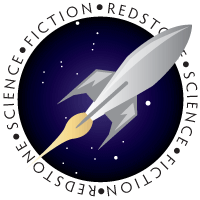
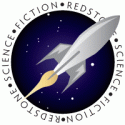



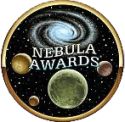
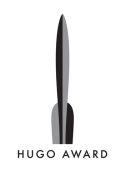
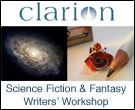



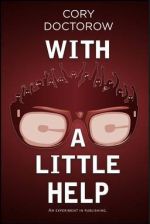
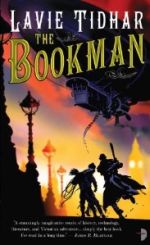
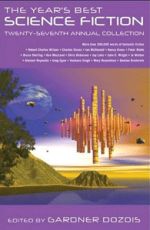


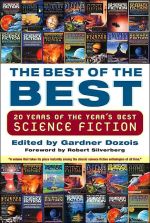
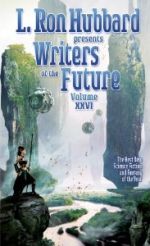

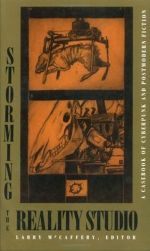



5 comments
[…] Imagine Cows on Mars by Matthew […]
[…] Mars and expanding our civilization there is something that seems withing our grasp. In Imagine Cows on Mars Matthew Bennardo takes a hard look at what frontier life on Mars might be like. As a historian, the […]
[…] in April, I sold a story to Redstone Science Fiction and it’s now already up and ready to be read. It’s about “sooners” who illegally settle on Mars while terraforming is still […]
[…] Fast forward to today, almost seven years later. After taking several years off from trying to sell my stories, I’m submitting more now than I ever have before. I’ve been fortunate to have several stories accepted, and a few have already seen print (digitally speaking). The first to generate any real response beyond folks I know is a story from the May 2012 issue of Redstone Science Fiction called “Imagine Cows on Mars”. […]
[…] “Imagine Cows on Mars” by M. Bennardo at Redstone Science […]